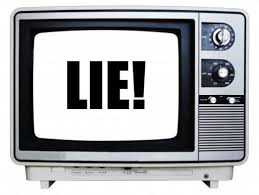We tend to believe what we read. At least, we usually believe it until (or if) we get the other sides of the story. Then we draw our own conclusions.
The Dutch philosopher, Baruch Spinoza, did a lot of work on the belief of information. This is a great article, which discusses his work alongside the work of Descartes, and provides the results of a study: http://www.spring.org.uk/2009/09/why-you-cant-help-believing-everything-you-read.php (since this is an article about us believing what we read, I feel I should provide comprehensive references to what I say so I’m not accused of b*llsh*tting you all).
With this in mind, we should be very careful about what we believe in the media – especially now that we are closing in on the General Election. There is a lot of good, impartial journalism out there, but you need to be vigilant because we live in a time where wealthy, powerful people use media outlets for their own personal gain. They are willing to leave truths out of their work, emphasise the points that suit them, and straight up lie to get what they want.
Look at the recent Daily Mail headline that coined Nicola Sturgeon (SNP Leader) as “The Most Dangerous Woman in Britain” based on nothing more than conjecture, and a very un-scientific projection of the future if the SNP were successful in the elections. Similarly, the Telegraph released a despicable article about a conversation between Nicola Sturgeon and a French Ambassador without going to either of them for a quote (both deny the content of this conversation that the Telegraph reported on, so the report amounts to fiction projected to us as the truth).
As a species, we are very trusting. As humans developed, information was life and death. When we lived in nomadic tribes, we passed information to one another about things such as the availability of food in an area. We are hardwired to follow this sort of guidance. When we were toddlers, our mothers and fathers told us not to go near the fireplace because it was hot, and it would have burnt us. We believed them automatically because it was essential for us to believe them. Our minds are filled with loopholes when it comes to believing what we’re told, and there are people out there who will take advantage of that.
I’m an advocate of free speech. I like it when people give their opinions and speak their minds, no matter how controversial or outlandish (when things are out in the open, you know what you’re up against). But there is a big difference between this and purposefully deceiving people for personal gain. As I write this, the media is producing something designed to benefit a political party (and to hell with the truth!). And let us not forget that it is the lower class masses that are most influenced by the media – because there are more of us, so we watch more TV and buy more newspapers, etc.
Don’t let the media set the terms of our democracy!


Very true & a serious problem here in the US where only a handful of owners control the majority of our print & broadcast news sources
LikeLiked by 1 person
It’s even worse when it comes to how our corporate media organisations portray foreign affairs to us. The 2011 ‘War in Libya’ was the absolute worst example of a one-sided, fabricated narrative I’ve ever witnessed. The BBC was even caught airing fake footage of supposedly popular anti-Gaddafi civilian protests… which turned out to be stock footage of completely unrelated demonstrations years earlier in India! The dead giveaway was the Indian flags being waved in the footage, which the BBC forgot to edit out!
LikeLiked by 1 person